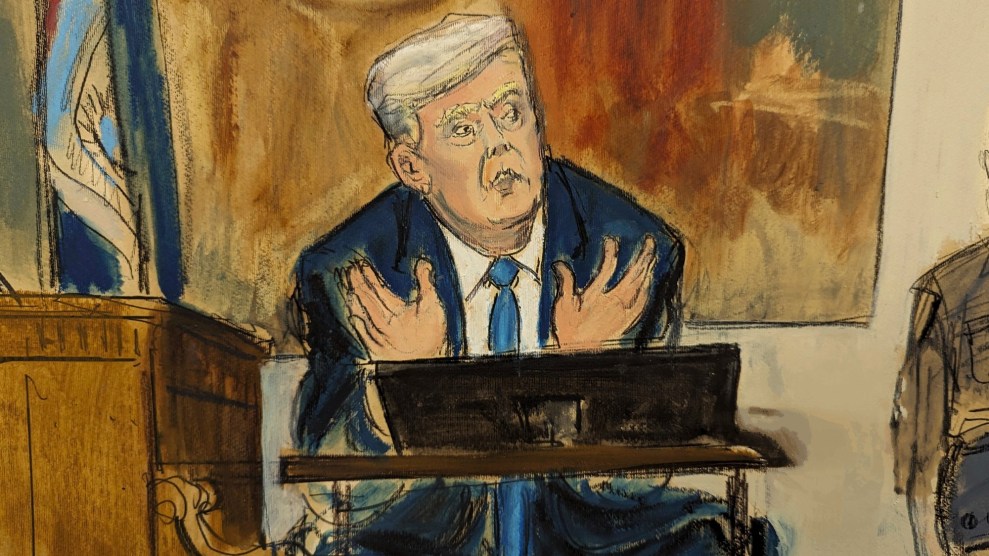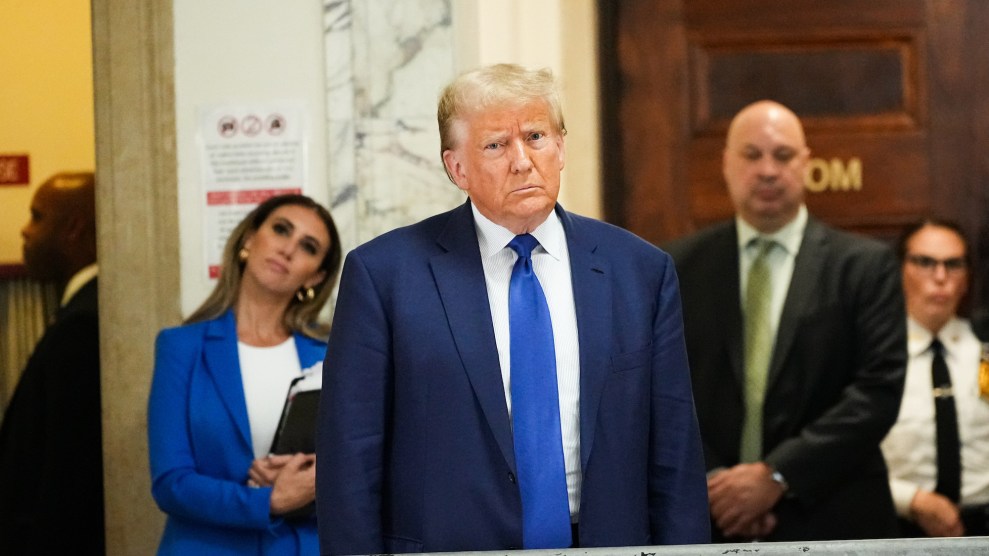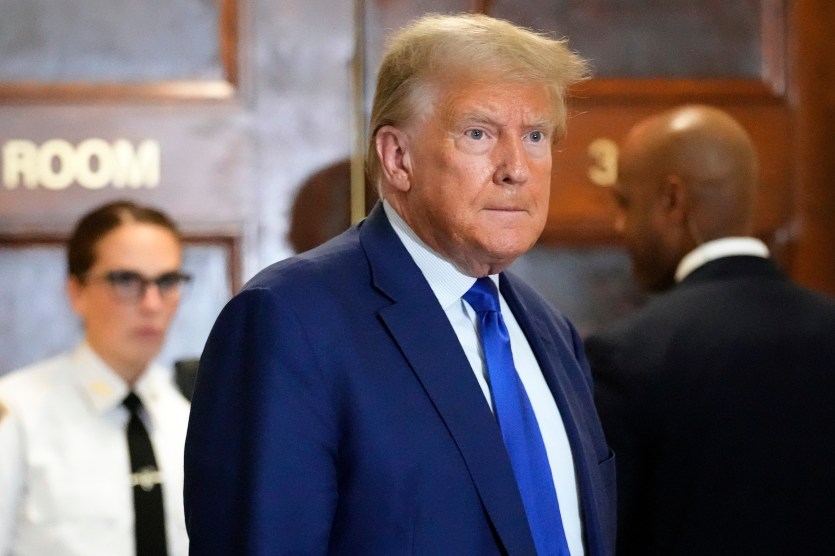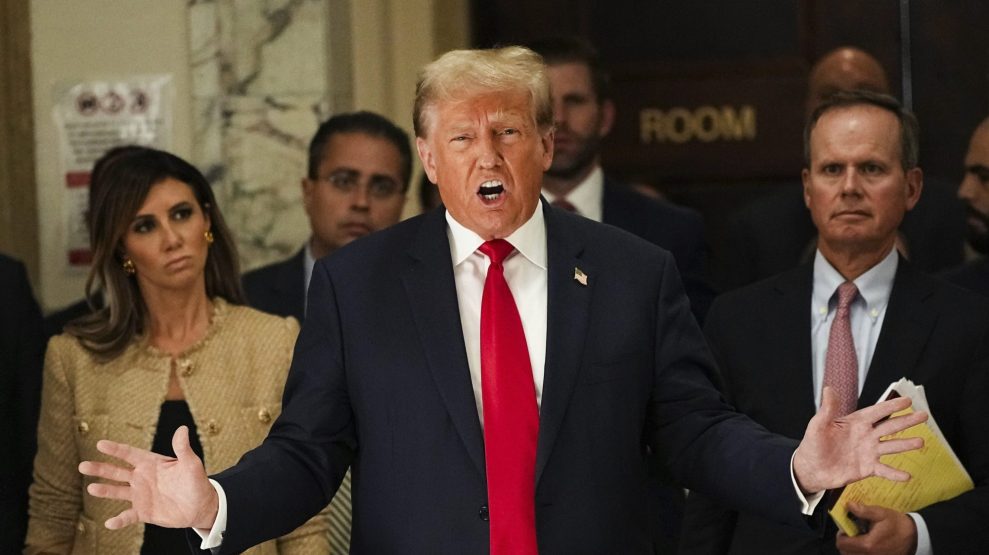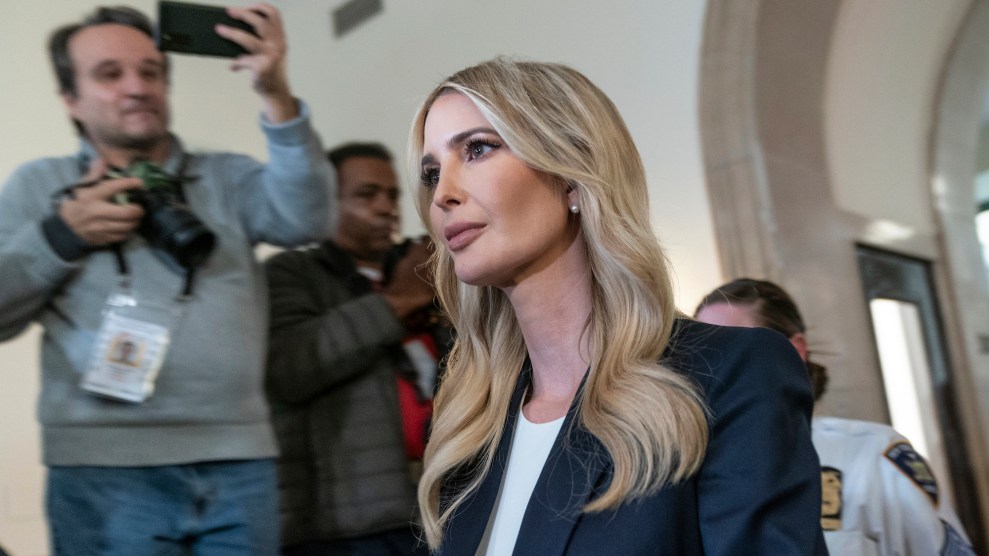
Lev Radin/Sipa USA/AP
Ivanka Trump took the stand on Wednesday in her father’s civil fraud trial, but to hear her tell it, she wasn’t sure why. Trump was polite and relaxed, in stark contrast to her father—who took the stand on Monday, rambling and frequently devolving into emotional outbursts during his testimony—and brothers, whose testimony was often defensive. But as personable as her demeanor may have been, she displayed an astonishingly bad memory.
Ivanka Trump was originally named as a defendant in the fraud case, brought by New York Attorney General Letitia James, who has accused former president Donald Trump, his company, and his two adult sons of fraudulently inflating the values of his assets to get better terms from banks and insurance companies. A higher court removed Ivanka from the case in June, saying she had largely cut ties with the Trump Organization during the period in which the fraud occurred. She attempted to avoid testifying at all, claiming that she knew little about the business details at the heart of the case.
Indeed, on the stand, Trump insisted she didn’t remember the details of almost everything James’ attorneys inquired about. Over and over, asked about a particular deal or relationship with this or that bank, she drew a blank, answering “I don’t recall” at least two dozen times. When prompted with emails and letters she had written or that had been sent to her, or confronted with accounts from others about her involvement, Trump generally conceded to remembering only the most basic details.
Even when Louis Solomon, an attorney with James’ office who led Wednesday’s questioning, showed her copies of the documents in question, Trump said her memory wasn’t jogged. Incredibly, she claimed she couldn’t recall how much money she’d received when her father sold his downtown Washington, DC, hotel in 2021—more than $4 million. She said she remembered only that she had been paid.
Trump was, however, very firm in her insistence she had nothing to do with any of the Trump financial statements that the judge, Arthur Engoron, has deemed fraudulent. And her memory seemed much improved when her father’s attorneys cross-examined her about some of the same deals that she’d struggled to recall just a few minutes earlier.
Take the Doral golf course in Miami, for which the Trump Organization got favorable interest rates from Deutsche Bank via an executive whom Ivanka had introduced to her father—rates based in part on fraudulent statements of her father’s financial status. Under questioning by the prosecutors, she said she didn’t remember details any of the competing loan offers—and didn’t even remember some of the offers—that she’d personally solicited from a slew of lenders. But upon friendly cross-examination, she lit up and spoke warmly about her father’s hopes for the golf course.
“My father had a deep and nostalgic love for that property, telling me about going to that property with his own father,” she said. “He told me he took my mother there.”
In contrast to her professed inability to remember how much she profited from the sale of Donald Trump’s DC hotel, she remembered exactly how much the Old Post Office building (which was renovated to build the hotel) had been costing taxpayers annually ($7.5 million). She also spoke very positively of her father’s relationships with Deutsche Bank executives—the defense focused heavily on how the banks that lent money to Trump based on fraudulent financial statements did, in the end, get all of their money back.
But Trump’s claim that she couldn’t remember any of the fine details also rendered her unable to push back on any of the dozens of documents introduced as evidence during her testimony. These included loan offers from lenders who hadn’t seen the fraudulent statements and had offered interest rates nearly double what Deutsche Bank provided the Trump Organization. This goes to the heart of James’ claim: that the company saved hundreds of millions of dollars in interest and insurance fees because companies believed he was wealthier—and thus less of a financial risk—than he really was.
Outside of the courthouse, James, who watched the testimony from the front row, said that Ivanka Trump’s amicable affect didn’t change anything about the case. “At the end of the day, this case is about fraudulent statements about the financial condition that she benefited from,” James told reporters. “Despite the fact that she was very, very nice, very friendly—facts basically demonstrate the truth.”
Ivanka is James’ final witness. Donald Trump’s attorneys will begin arguing their side next week.

